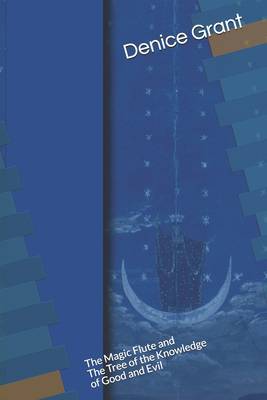
- Afhalen na 1 uur in een winkel met voorraad
- Gratis thuislevering in België vanaf € 30
- Ruim aanbod met 7 miljoen producten
- Afhalen na 1 uur in een winkel met voorraad
- Gratis thuislevering in België vanaf € 30
- Ruim aanbod met 7 miljoen producten
Zoeken
€ 47,95
+ 95 punten
Omschrijving
Wolfgang Amadeus Mozart's opera, The Magic Flute, set to Schikaneder's libretto, brings to the forefront the Enlightenment models of light and darkness, good and evil. The traditional understanding of these concepts pits light against darkness, and good against evil. This thesis contends that Die Zauberflöte is a work which portrays a system that contains both good and evil, rather than one that depicts the clash of good against evil. The ancient Pythagorean Monad and Dyad explain this concept. The Monad, a single number, represented an indivisible principle said to belong to the Olympian Creator Gods, while the Dyad, a dual, divisible law, represented a principle which contained two opposing forces. This principle was the property of the demiurges, who, according to the ancients, rule the earth. The main purpose of the law of contrary forces is to enforce order, and it accomplishes this goal through a system of merit and demerit, rewards and punishments. In this paradigm, Sarastro and the Queen of the Night are symbols of Osiris and Isis, the Egyptian gods who formed a unified godhead operating by the law of opposing forces. Part of this godhead is also Typho, Monostatos in the opera, the representation of pure evil. The significance of ancient Egyptian mysticism is stressed in this study for a better understanding of the opera. To that end, three of the main sources for the libretto, the fables of Dschinnistan, Ignaz von Born's Über die Mysterien der Egyptiens, and Jean Terrasson's The Life of Sethos are explored. In addition, the writings of the Freemasons as well as eighteenth-century literature and philosophy are examined to ascertain the degree to which the system of contrary duality was relevant in Mozart's time.
Specificaties
Betrokkenen
- Auteur(s):
- Uitgeverij:
Inhoud
- Aantal bladzijden:
- 168
- Taal:
- Engels
Eigenschappen
- Productcode (EAN):
- 9780995818972
- Verschijningsdatum:
- 16/11/2020
- Uitvoering:
- Paperback
- Bestandsformaat:
- Trade paperback (VS)
- Afmetingen:
- 152 mm x 229 mm
- Gewicht:
- 234 g

Alleen bij Standaard Boekhandel
+ 95 punten op je klantenkaart van Standaard Boekhandel
Beoordelingen
We publiceren alleen reviews die voldoen aan de voorwaarden voor reviews. Bekijk onze voorwaarden voor reviews.













